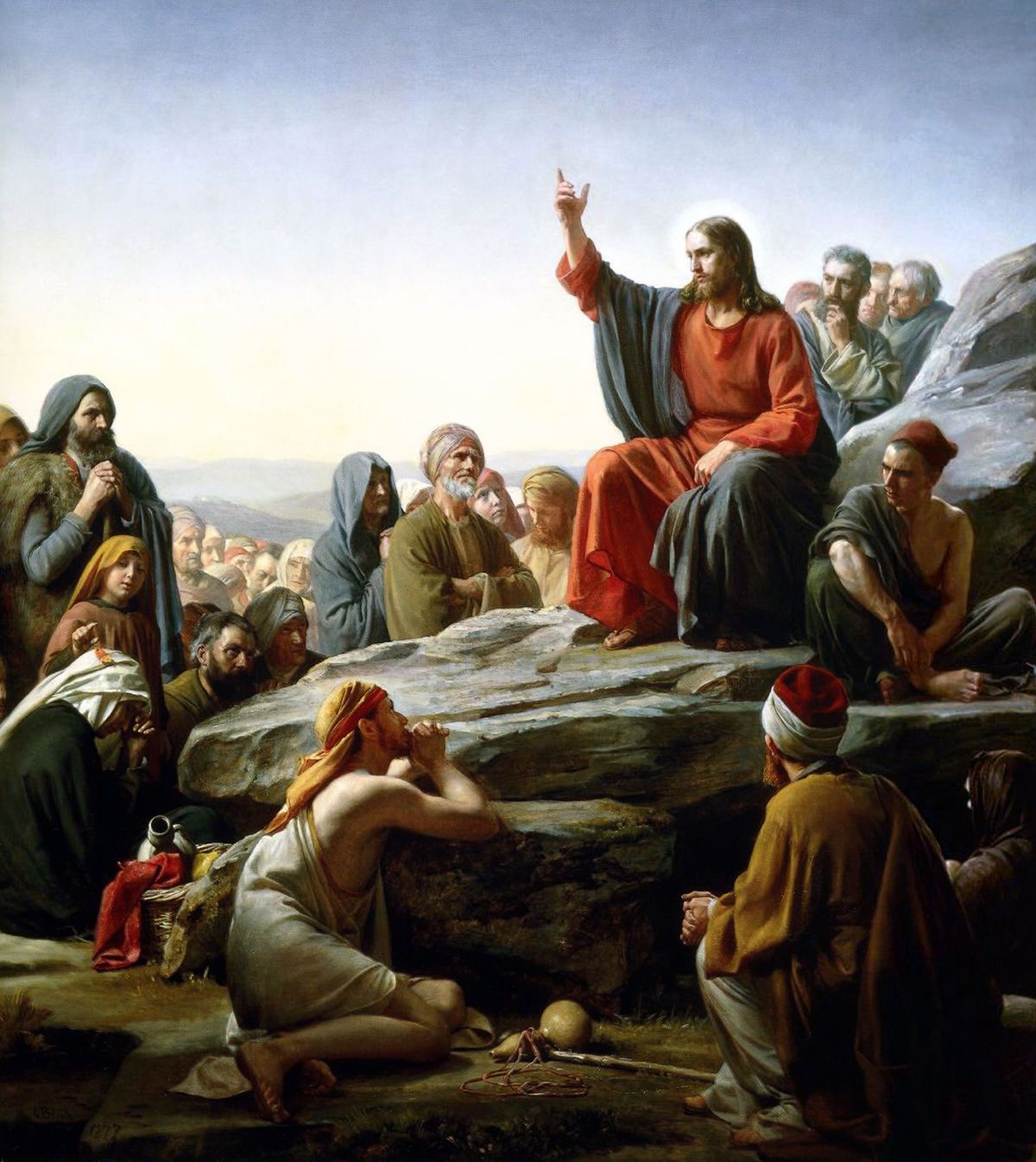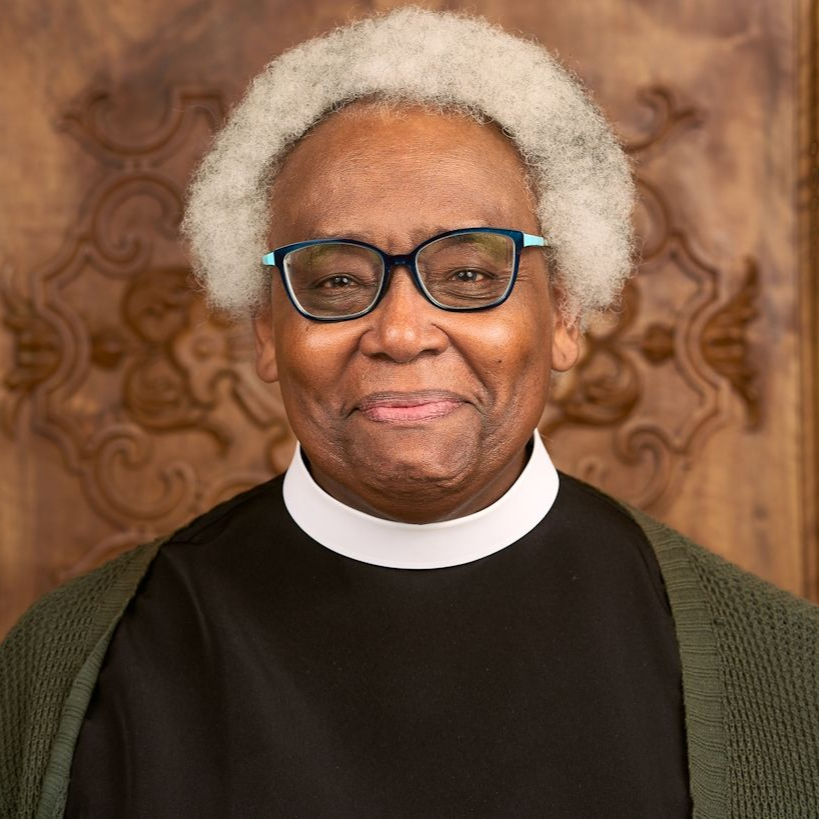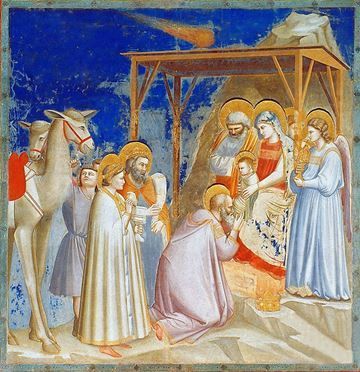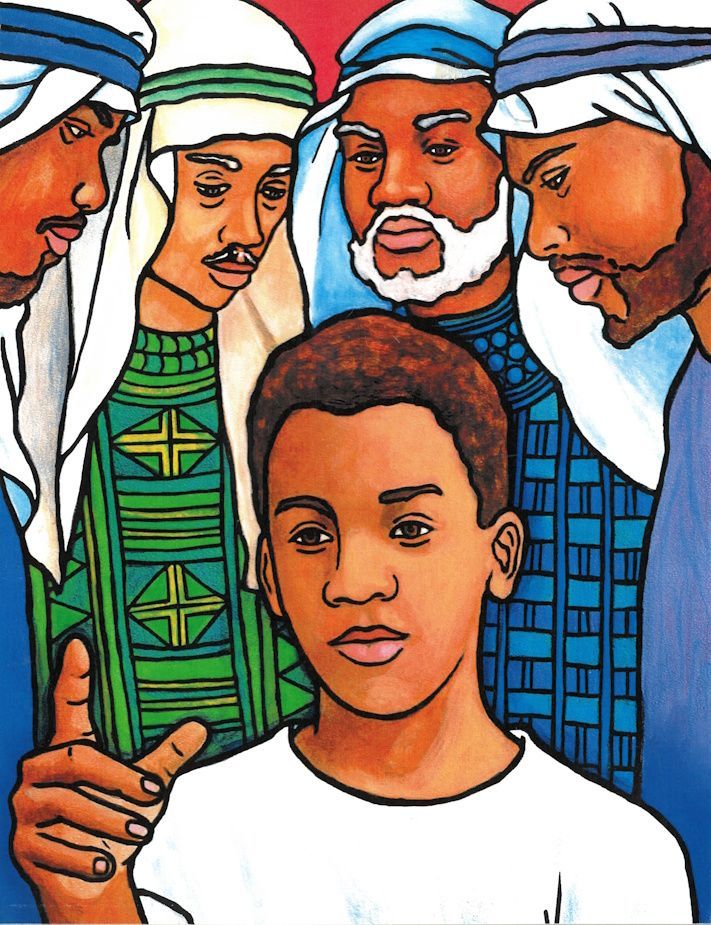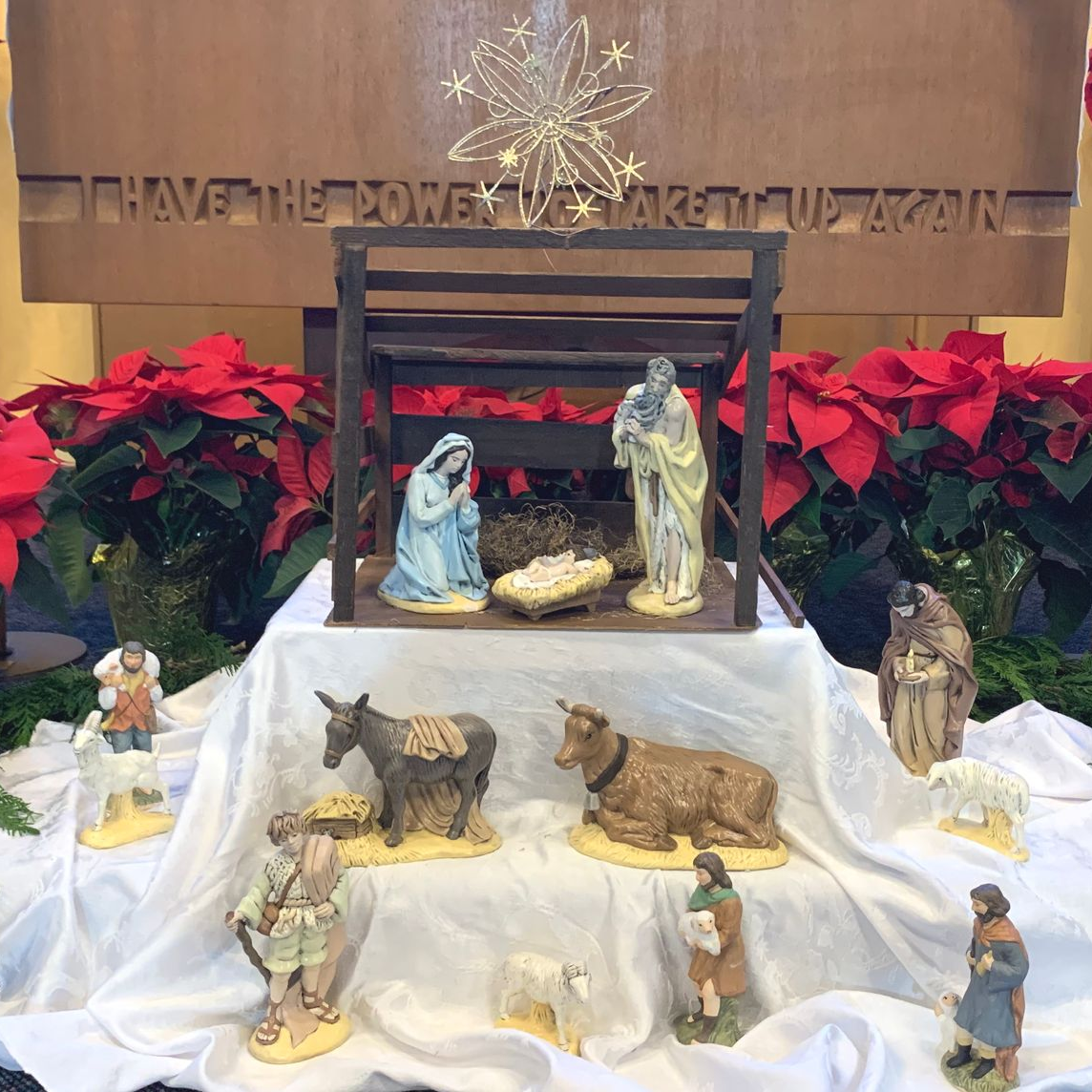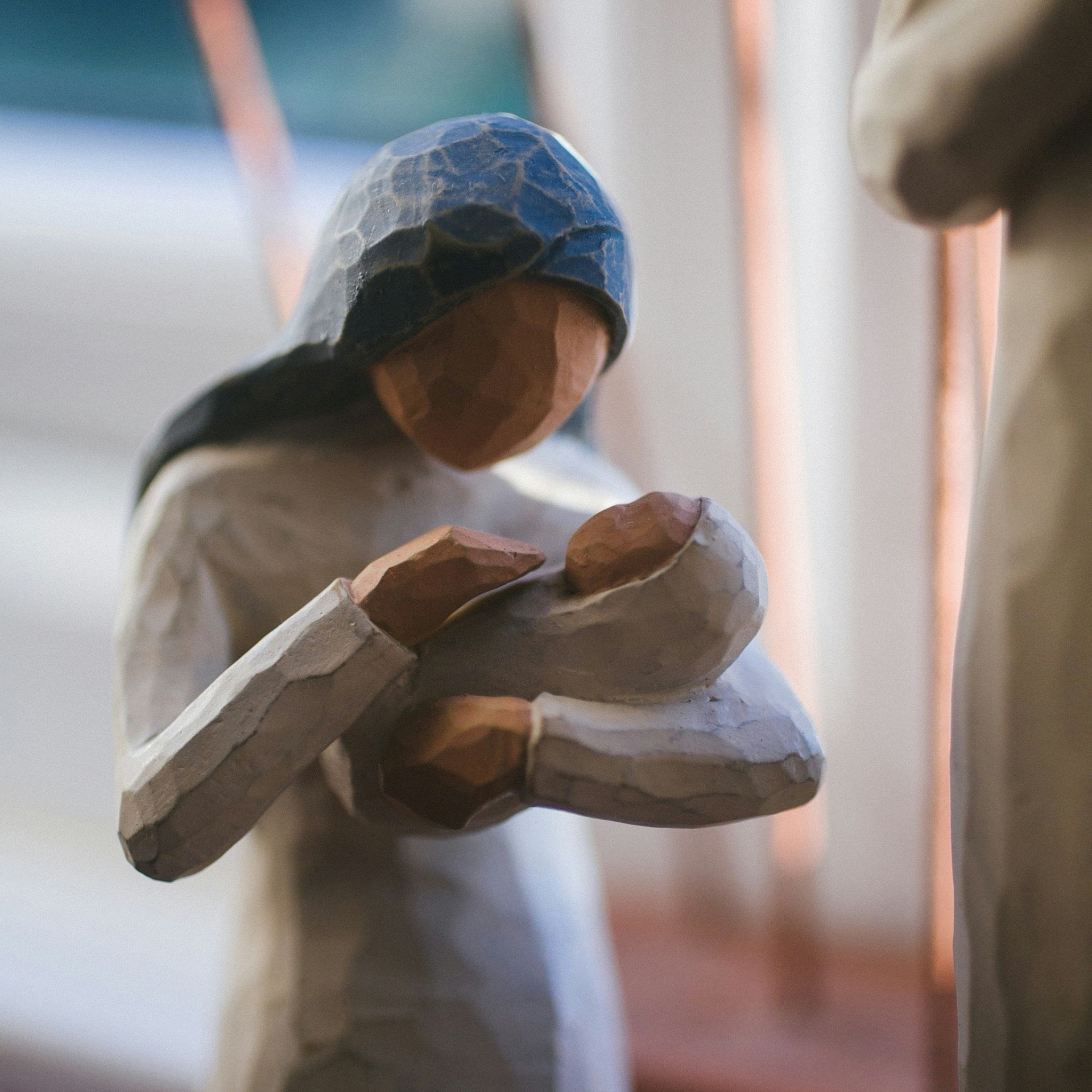Losing Faith in Our Stuff
How can a single message both urge those with more to give more—and reassure those with less that there’s no reason to feel guilty about that?
Sermon preached at Church of the Good Shepherd, Federal Way, WA
www.goodshepherdfw.org
by the Rev. Josh Hosler, Rector
Twenty-First Sunday after Pentecost (Proper 23B), October 13, 2024
Amos 5:6-7,10-15 ;
Psalm 90:12-17 ;
Hebrews 4:12-16 ;
Mark 10:17-31
I woke up Thursday morning with great trepidation. I have a bad habit these days of checking the news at the crack of dawn, as if being better informed about just how awful things are will somehow make me more righteous. I watched footage of Hurricane Milton sweeping over Florida. I saw that there was an interview with medical helpers in Gaza about what they’ve seen and what it tells them about the nature of the war … but I didn’t have the guts to read beyond the horrifying headline. I checked the election polls, but they haven’t budged.
The only thing that made me feel good was that the previous night, Christy and I had just sat down and made a number of donations: to Episcopal Relief and Development, the League of Women Voters, and the Southern Poverty Law Center. And, of course, we made our pledge, which I told you about in my column in the Shepherd’s Crook on Thursday.
I looked at the draft of the service leaflet that you now have in hand, and I thought, “Whoa, it seems like all we’re doing on Sunday is asking people for money.” That is the focus of the gospel reading, of course. It’s just that some of us have a lot of money, and some of us have very little, and how can a single message both urge those with more to give more—and reassure those with less that there’s no reason to feel guilty about that?
I want to rescue everyone from feeling bad about money. But then, it’s not my rescue effort. That belongs to Jesus. And sometimes we don’t even know what we need to be rescued from.
Look at this wealthy man who approaches Jesus. He is not a notorious sinner. He is not abusive or malevolent. Rather, he is overconfident. He thinks he’s really winning at this life thing.
In this man’s mind there’s one thing left: eternal life, or, as Jesus calls it, the Kingdom of God. He wants to achieve his salvation and then feel secure in having obtained it. He wants to be one of those who believes it’s crucial to know exactly what’s up while he lives … and also where he’s going after he dies.
Now, there’s no reason to doubt his sincerity. He is a purpose-driven believer who has his best life now. This is his time. All he needs is that one key to perfection—which Jesus must certainly be able to provide for him.
“Good teacher,” he begins, kneeling in reverence before the master rabbi, “what must I do to inherit eternal life?”
Let’s pause the recording for a moment. I want to tell a very brief story of my own. Early in our marriage, Christy and I wanted to buy a house, but we lacked the savings to make a down payment. Then, at just the right moment, my grandmother died and left us $12,000. And we had what we needed.
What exactly did I have to do to inherit that down payment?
Yeah, that’s what I thought. I’m starting to think that the man might be missing the point. Furthermore, it’s not like we actually needed to buy a house; we just wanted to. Was God in that process? I refuse to claim certainty. Financial privilege is never a sign of divine favor.
OK, hit the play button again. Jesus answers the man’s question with a question: “Why do you call me good?” It’s like, hey, buddy, stop for a moment and wonder. What makes me good? What makes you good? What’s the source of all this goodness?
Yet the man doesn’t stop to wonder; he plows onward, eager to share that he has perfected the art of following the law! He has never done anything wrong—and maybe he’s not just kidding himself. Let’s give him the benefit of the doubt and assume that he is, indeed, a very earnest, very good man, not at all like the people Amos excoriates, the people who are intentionally trampling the poor. This man is one of the good rich people. They do exist … right?
I don’t think it occurs to this man that he might go away from Jesus grieving. Indeed, his privileged position has taught him that you can achieve anything you put your mind to.
Jesus replies: “You lack one thing: sell what you own, and give the money to the poor, and you will have treasure in heaven; then come, follow me.”
I’m going to pause the recording again and tell you about a dream I once had. I was with a group of people under a gigantic, permeable dome. We all knew that beyond the dome was heaven. We watched as a man and a woman, a married couple, pondered this fact. Then the woman suddenly took off into the air and flew, shooting up joyfully and puncturing the dome, which sealed again behind her. Her husband stood on the ground and watched. And he turned away, grieving, because he was too scared to follow her.
Meanwhile the rest of us were eager to fly after her, and we knew that we could. But there was just one thing: we had in our midst a gigantic machine of some kind, and we couldn’t imagine leaving it behind. So we tried to lift the machine and fly with it beyond the dome. But even with all of us working together, we couldn’t lift it more than a couple inches off the ground. So we resigned ourselves to staying down below, because we weren’t going anywhere without our machine.
Both in Jesus’ time and today, it’s the same situation: we are addicted to our possessions. We might say and believe that our possessions aren’t what counts, but what if we were given a distinct opportunity to put our money where our mouths are?
That’s what happens to this man in Jesus’ presence. For all his earnest and self-confident kindliness, he is called up short. In the Kingdom of God, having wealth holds us back. Period.
We all want to “get it right,” just like this rich man did. What if we can’t get it right?
What if we cannot help ourselves, but instead must become helpless? What if we cannot receive unless we are first empty?
What if even a good, steady job that benefits the whole world can’t get us closer to God, but unemployment can?
What if our generosity can’t earn us points in “the good place,” but our poverty blesses us?
What if our carefully managed plans for a safe life just lull us into a false sense of security? What if being in danger is actually better for our spiritual growth?
What if such a realization drives us into a form of grief that is actually the first step toward benefiting from our salvation?
See, here’s the thing: Jesus makes clear in the gospels that God sides with the unemployed, the homeless, the hungry, the lonely, and the abused … over against the rest of us. God loves us all, to be sure, but God doesn’t love our possessions, or our security, or our confidence in our self-sufficiency. “Believe in yourself” is not the gospel and often runs contrary to it.
When things are going well for us, we are so easily led into the false belief that we are in control. It’s not until we come to understand ourselves as poverty-stricken—voluntarily or otherwise—that we can begin to receive God’s love.
I’m telling you this with as much trepidation as I felt in my ill-conceived morning news comsumption. I walk away from this gospel passage grieving, because I have many possessions. And I wonder what it would take for me to lose all faith in their saving power.
Oh, the word of God is indeed “living and active, sharper than any two-edged sword, piercing until it divides soul from spirit, joints from marrow”! God’s judgment of the folly of our lives is real, and it will cause us to grieve.
Jesus’ disciples are shocked. It’s as if, for one fleeting moment, they actually understand the gospel. When we talk about the baptized life, we’re talking about an alternative lifestyle, a lifestyle that stands in stark contrast to that of, for instance, American culture, because it is both totally free and costs us everything.
In his classic book The Cost of Discipleship, Lutheran pastor and Nazi resister Dietrich Bonhoeffer wrote about Levi the tax collector, a man with many possessions who did indeed follow Jesus:
At the call, Levi leaves all that he has … not because he thinks that he might be doing something worthwhile, but simply for the sake of the call … The disciple simply burns his boats and goes ahead … The disciple is dragged out of his relative security into a life of absolute insecurity (that is, in truth, into the absolute security and safety of the fellowship of Jesus).[1]
You may now be saying, “Well, it’s not like it makes sense for all of us to sell everything we have”! I’m not saying that. But what if we all took just one step toward beginning to understand that we don’t actually own anything—that we have no right to keep any particular possession?
What if we practiced giving ourselves away?
What little thing can we do this week to lose faith in our stuff, to open our hands wide and say to God, “All that I have is yours, and so I offer it back to you”?
[1] Dietrich Bonhoeffer, The Cost of Discipleship (New York: Simon & Schuster, 1959), 58.



